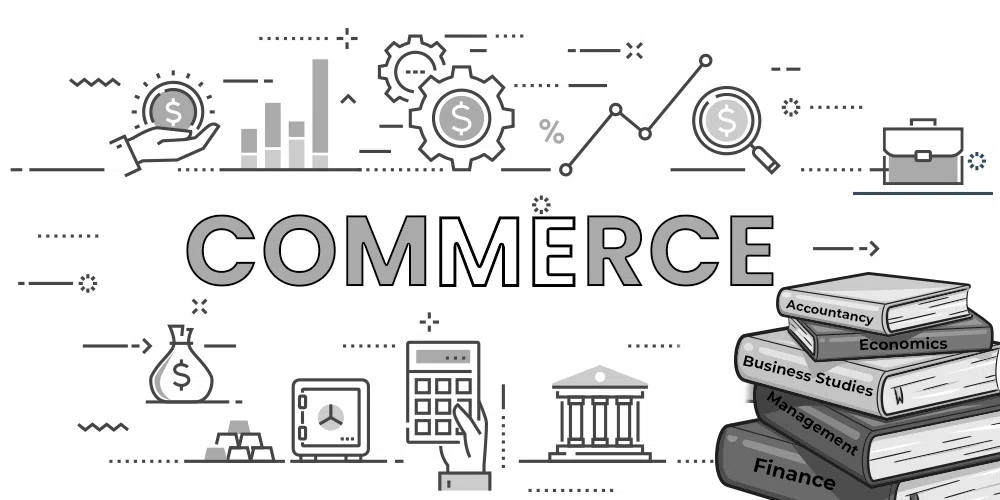11th and 12th Courses
April 24, 2024 2024-05-03 7:3411th and 12th Courses
Grow strong to take up the challenges of life. The top lessons for getting you back on track.
11th and 12th Courses
11th Class Commerce Courses
Welcome to our 11th Class Commerce Stream, a comprehensive curriculum designed to equip students with foundational knowledge and skills in business, economics, and finance. The following courses are tailored to nurture analytical, strategic, and management capabilities, preparing students for further studies and careers in the commerce sector.

Accountancy:
- Overview: Accountancy is the backbone of commerce. This course introduces the basic principles and concepts of accounting, including the preparation and interpretation of financial statements. Students learn about double-entry bookkeeping, ledger accounts, bank reconciliation statements, and the fundamentals of financial reporting.
- Key Topics: Introduction to Accounting, Journal Entries, Ledger Accounts, Trial Balance, Profit and Loss Account, Balance Sheet.
Business Studies:
- Overview: This course explores the nature and purpose of business activities, covering essential aspects of business operations and management. Students analyze case studies to understand organizational structures, marketing, finance, human resource management, and entrepreneurship.
- Key Topics: Nature and Purpose of Business, Forms of Business Organizations, Public and Private Enterprises, Business Services, Emerging Modes of Business, Social Responsibilities of Business.
Economics :
- Overview: Economics in Class 11 is divided into two main parts: Microeconomics and Statistics for Economics. Microeconomics deals with the behavior of individuals and firms in making decisions regarding the allocation of resources. Statistics for Economics introduces students to tools necessary to collect, analyze, and present data.
- Key Topics: Introduction to Microeconomics, Consumer's Equilibrium, Demand, Supply, Forms of Market and Price Determination, Introduction to Statistics, Collection of Data, Presentation of Data, Measures of Central Tendency.
Mathematics:
- Overview: Enhance your quantitative skills with mathematical techniques that are essential for a comprehensive understanding of the commerce subjects.
- Key Topics: Relations and Functions, Algebra, Calculus, Linear Programming, Probability.
- Skills Gained: Problem-solving skills, quantitative analysis, logical reasoning.

12th Class Commerce Courses
Creating engaging and informative course descriptions for a 12th class commerce curriculum is essential for attracting students and providing clear guidance on what to expect. Below, I will outline several course descriptions tailored for a website offering 12th class commerce education. Each course will have a brief description that highlights its objectives, key learning outcomes, and any prerequisites.
Business Studies:
Course Description:
Explore the world of business and develop key management skills with our comprehensive Business Studies course. Students will delve into topics such as business management, marketing, human resources, and finance. Through case studies and project-based learning, students will understand how companies operate and make strategic decisions.
Key Learning Outcomes:
- Understand the foundations of business operations and management.
- Analyze various business functions and their interconnections.
- Develop strategic thinking and problem-solving skills.
Prerequisites: Basic understanding of economics recommended.
Accountancy:
Course Description:
Dive deep into the principles of accounting with our detailed Accountancy course. Designed for students with an interest in finance, this course covers topics from basic bookkeeping to advanced accounting principles, including preparation of financial statements and accounting for various types of business transactions.
Key Learning Outcomes:
- Master the fundamentals of double-entry bookkeeping.
- Prepare and analyze financial statements.
- Understand financial decision-making in business contexts.
Prerequisites: None, although familiarity with basic mathematics is helpful.
Economics:
Course Description:
Unravel the complexities of economic theories and their real-world applications in our engaging Economics course. Covering both microeconomics and macroeconomics, this course provides students with a thorough understanding of economic principles and how they apply to individual decision-making and broader national policies.
Key Learning Outcomes:
- Comprehend key economic theories and models.
- Analyze market behaviors and economic trends.
- Evaluate the impact of economic policies on a national and global scale
Mathematics:
- Advanced algebra, calculus, and statistical tools in business.
- Application of mathematical tools in economic forecasting and financial analysis.
- Problem solving and logical reasoning sessions to improve analytical skills.

